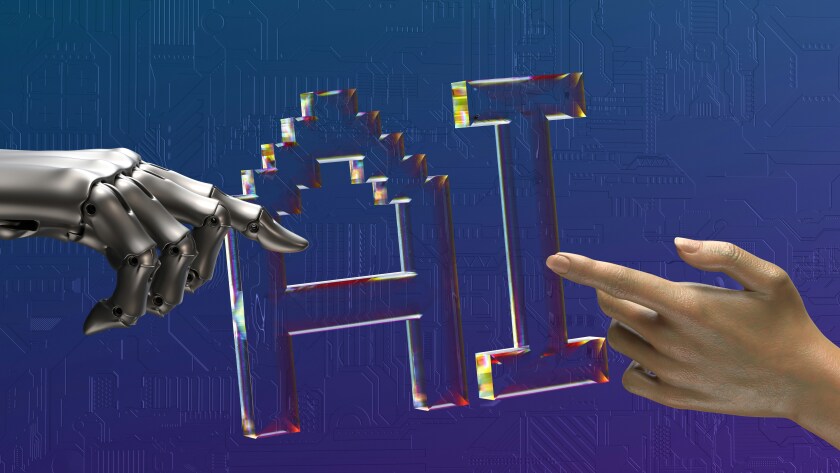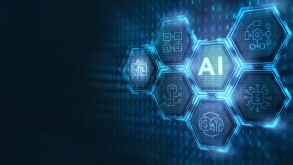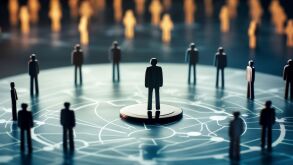Rapid advances in the field of AI are impacting almost every industry and business, as well as our daily lives. Undoubtedly, AI is a strong tool for innovation that enables us to create new inventions in various fields. In this respect, the issue of whether AI can be named as an inventor remains controversial, and many jurisdictions are yet to accept AI inventors.
Like other jurisdictions, a South Korean court has issued a decision holding that AI cannot be an inventor (2022GuHap89524, rendered on June 30 2023). As an interesting contribution to the subject, the Korean Intellectual Property Office (KIPO) recently announced the results of a public survey on AI inventors.
This article introduces the details of the Korean court’s view and the public survey results.
The DABUS AI case in Korea
The case at issue concerns a Korean national phase application based on a Patent Cooperation Treaty application filed by Dr. Stephen Thaler, the creator of AI called DABUS (Device for the Autonomous Bootstrapping of Unified Sentience), listing “DABUS, the invention was autonomously generated by an artificial intelligence” as the inventor.
KIPO, upon its formality examination, issued a notice of amendment requesting the applicant to replace the listed inventor with a natural person but eventually issued a notice of nullification on the ground that the application violated the formality requirements, and there was no legitimate amendment with regard to the inventor.
KIPO’s nullification was appealed to the Seoul Administrative Court.
The court dismissed the appeal on the following grounds:
Article 33(1) of the Korean Patent Act provides that a ‘person’ who creates an invention, or their successor, shall be entitled to a right to a patent on the invention. That is, this provision literally indicates that only a natural person who creates an invention can be an inventor.
Given the current state of technology, there is no evidence supporting the emergence of strong AI, which refers to AI capable of autonomous decision making and actions beyond human-developed or provided algorithms or data. DABUS does not appear to be strong AI since a human significantly contributed to DABUS’s learning process, and a patent attorney collected the sentences and graphs generated by DABUS and rewrote them to comply with the patent specification. Thus, it is not acknowledged that DABUS independently created the invention without any human intervention.
Under Article 2(1) of the Patent Act, an invention is defined as a “highly advanced creation of a technical idea using the laws of nature”. The ‘technical idea’ (not the technology per se) and ‘creation’ are premised on human mental activities. In addition, given that a right to a patent is inherently vested in the inventor, the inventor must possess legal capacity. Under articles 3 and 34 of the Korean Civil Act, only a natural person or a legal person can have legal capacity, and, thus, AI that is neither a natural person nor a legal person cannot be given legal capacity.
It is difficult to conclude that permitting AI as an inventor would ultimately contribute to the technological and industrial development in society, since there is no sufficient reasonable basis to recognise that such permission would encourage AI or AI developers to more actively create inventions, while there are concerns about adverse effects on human-driven innovations, disruption of research-intensive industries, ambiguity in liability for legal disputes involving AI inventions, etc.
Especially, in response to the applicant’s arguments that if listing AI as an inventor is prohibited, there would be no way to protect AI-generated inventions without any human intervention, which would be against the purpose of the Patent Act, the court stated that the current laws and regulations do not seem to prohibit listing a human who used AI and thus contributed to the invention as an inventor, and there is also a way to protect such an invention as a trade secret.
Emphasising that it does not appear that AI technology is currently advanced to such an extent that it can create an invention without any human intervention, the court added that in the event that such strong AI emerges in the near future, this issue may be addressed by relevant changes in the law/policy after technical and policy discussions.
An appeal against this decision was filed on July 28 2023, and is pending before the Seoul High Court.
Public survey on AI inventors
KIPO’s public survey was conducted on 1,500 people, including 1,204 general citizens and 292 AI experts. This was the first public survey on AI inventors.
With regard to a question about the current state of AI technology, 70% of the general citizens responded that AI can contribute to an invention together with a human, while 66% of experts responded that AI is merely a tool to assist a human.
The majority of experts were negative about recognising AI as an inventor (60.8%) or a patent holder (75.6%). Furthermore, the majority of experts (50.5%) were of the opinion that when AI contributes to an invention, a right to a patent on that invention should be given to the user of AI, such as a person who creates an invention by using AI.
The majority opinion of both the general citizens and the experts was that if a patent is granted for an invention for which AI contributed to the invention process, the protection period should be shorter than the current patent term of 20 years. This appears to be due to concerns that AI can result in a large number of inventions in a very short time, thereby excessively eroding human creativity.
Final thoughts
There is an explosive growth trend in AI patent applications in Korea. In line with this trend, KIPO is taking an active policy stance in protecting AI inventions; for example, KIPO has issued and updated the examination guidelines in the AI field, and has selected AI technology as an eligible category for accelerated examination. Thus, an AI patent application can enjoy the benefit of fast-track examination by requesting an accelerated examination.
Meanwhile, regarding formality requirements, it is noteworthy that KIPO takes a stance that naming AI as an inventor is not permissible, like other patent offices. Under the current Korean legal principles, it will be a safer approach to list a natural person who used AI and thus contributed to the invention as an inventor.
As AI technology becomes more advanced, it is expected that discussions on how to deal with the AI inventorship issue will become more common. It is important for policymakers to respond quickly to keep up with the speed at which AI technologies develop.












